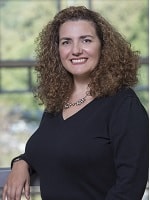So many of us who have struggled with eating disorders fear for our children; we watch their behavior for signs of restriction or binging, we take note of their exercise patterns and we keep our ears to the ground to detect even the faintest of judgmental self-talk.
What we are looking for are reflections of ourselves – signs that our babies are becoming us – the versions of us we don’t want them to ever know, much less, experience.
I have a friend who is recovering from an eating disorder. In college, her disorder looked like anorexia; after having children, her disorder more resembled Binge Eating Disorder. After many years and attempts at healing, she has found recovery.
This friend has a daughter who is now in her 20’s. Throughout her teen years, this daughter struggled with disordered eating patterns, and eventually developed both Anorexia and Bulimia Nervosa, for which she was hospitalized more than once.
So can we prevent our children from developing an eating disorder? Can we save them from experiencing first-hand the pain we have experienced?
Unfortunately, there are no guarantees. Research tells us that eating disorders are highly heritable and tend to run in families. I’m sorry to say we do not have control over such things…but that doesn’t mean we don’t have any power at all.
We have the power to set an example. We transmit to our children (blood-related or not) our coping skills and our behavior patterns. The aforementioned Mother did pass on the DNA to her daughter, but she also modeled self-care, self-compassion and what healthy recovery looks like. My friend’s daughter was able to see first-hand (in her mother) what it looked like to actively care for and appreciate her mind, body, and soul. She could see first-hand that recovery was possible, and that gave her the motivation to keep going. It has been a long road for her and for her family but she too is now in her third year of healthy recovery.
Under different circumstances, you might have been eating disorder free, but the fact is, you’ve struggled. The amazing thing is that you are now uniquely positioned to truly understand what your child is going through. You can validate their experience, share helpful coping skills and connect them with resources and support that were helpful to you.
It’s never too late to seek help or find recovery. It’s the best gift you can give your child. If you or someone you love is in need of support, we are here for you.
####
 Stephanie Haines, M.Ed., CHES, is the prevention education specialist at FREED. Her role is to provide prevention education to school communities including students, teachers, and administrators regarding eating disorders, body image and related topics. Before joining FREED, Stephanie was a Senior Prevention Specialist at FCD: Prevention Works!, part of the Hazelden Betty Ford Foundation located in Newton, MA. Here, she provided substance abuse prevention education to students on 5 continents. She continues her work with FCD by training school personnel in prevention strategies. Earlier in her career, she was a licensed certified occupational therapy assistant in New Hampshire. Stephanie is a member of the National Wellness Institute and is a member of a number of training and prevention-focused committees. Stephanie earned her master’s degree from Plymouth State University in New Hampshire, where she served as a graduate assistant to Margaret Burckes-Miller, founder and director of the university’s Eating Disorders Institute. She earned her bachelor’s degree from Granite State College and an associate’s degree from New Hampshire Technical College.
Stephanie Haines, M.Ed., CHES, is the prevention education specialist at FREED. Her role is to provide prevention education to school communities including students, teachers, and administrators regarding eating disorders, body image and related topics. Before joining FREED, Stephanie was a Senior Prevention Specialist at FCD: Prevention Works!, part of the Hazelden Betty Ford Foundation located in Newton, MA. Here, she provided substance abuse prevention education to students on 5 continents. She continues her work with FCD by training school personnel in prevention strategies. Earlier in her career, she was a licensed certified occupational therapy assistant in New Hampshire. Stephanie is a member of the National Wellness Institute and is a member of a number of training and prevention-focused committees. Stephanie earned her master’s degree from Plymouth State University in New Hampshire, where she served as a graduate assistant to Margaret Burckes-Miller, founder and director of the university’s Eating Disorders Institute. She earned her bachelor’s degree from Granite State College and an associate’s degree from New Hampshire Technical College.







